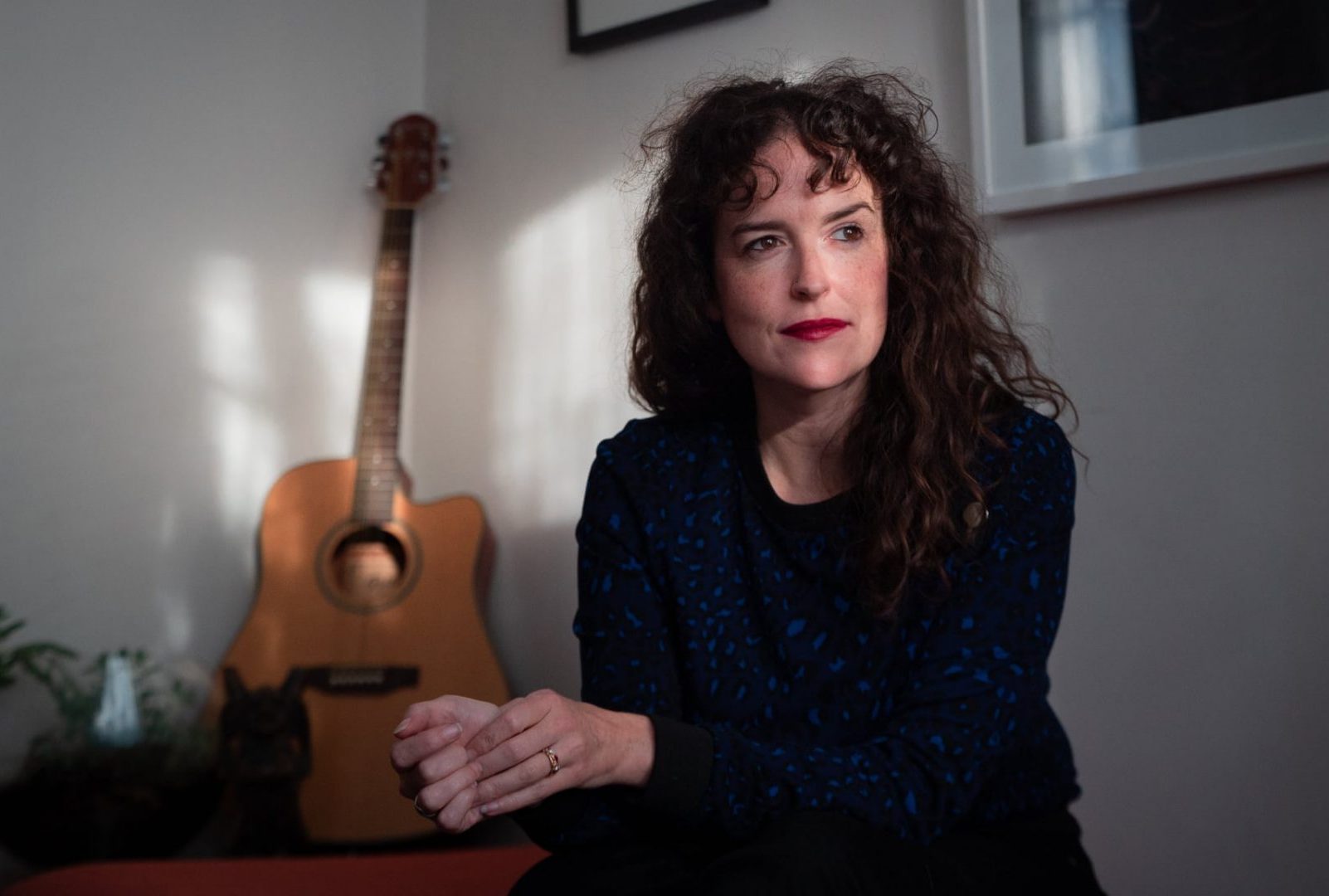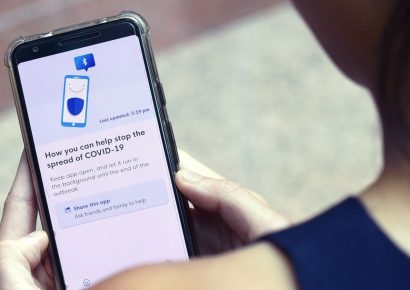Jess Hill’s novel about power, control, love, and abuse, See What You Made Me Do took out the 2020 Stella Prize this month.
The introduction lays clearly the premise of the highly-acclaimed novel, “It’s about the questions we don’t ask, like: ‘Why does he do it?’.”
The book challenges us – the reader, our society, and our government – to overturn our presumptions and prejudice about domestic violence, and attempts to understand the issue in all its complexities. But how does the novel reflect the reality of domestic violence in Australia?
Julie Oberin is an internationally regarded expert in the domestic and family violence sector; she’s worked in the system since 1990 and has been the CEO of Annie North Women’s Refuge and Domestic Violence Service for twenty-five years.
She has also been part of numerous campaigns including chairing the national committee for Women’s Emergency Services Network (WESNET). Oberin is one of the many experts interviewed by Hill in See What You Made Me Do.
In the book, Hill makes it clear that wherever possible she has, “…replaced the term ‘domestic violence’ with ‘domestic abuse’,” to reflect the range of abuse that occurs within the phenomenon. We asked Oberin about this semantic change. She said it is something her sector has been struggling with for a very long time; “There are a lot of different opinions.”
Oberin doesn’t place the lion’s share of value on what term is used, “It’s the explanations which are the important things”.
Hill thoroughly explains varying forms of violence in her book, dedicating an entire chapter to ‘The Perpetrator’s Handbook’. Oberin places importance on explaining the differences between, “…physical violence and other forms of coercive control, versus what [Hill] calls situational violence and violence which is not propped up by patriarchal power relationships and entitlement”.
Even if you can name domestic violence, you may not always be able to place it.
When interviewers ask me ‘what most surprised you in the research for your book?’ I often tell them this story. It is WILD. https://t.co/utGikVhz2u
— Jess Hill (@jessradio) April 21, 2020
“There’s so much stereotyping about it and that’s why people don’t see it,” says Oberin. She can recall women coming to refuge who hadn’t realised their situation as being domestic violence because they didn’t have any physical injuries.
“That’s why when we do public talks, we really concentrate on the coercive control and how it can be more lethal than physical violence.”
“…or [people] don’t want to see it.” While teaching a course on domestic violence, Oberin saw significant resistance from social work students who did not believe statistics on the prevalence of this kind of abuse.
As the course went along, they began to recognise their own experiences or experiences they were witness to, as being domestic violence.
“It’s why government hasn’t taken much notice of [domestic violence] in the past, because it makes you look at your own relationships… Sometimes it’s in the ‘too hard’ basket, and you don’t want to see what’s in there.”
Through WESNET, Oberin has pioneered Australian research into how technology intersects with domestic violence. In See What You Made Me Do, she provides insight into ‘tech-stalking’, and the ease at which technology can be weaponised by perpetrators.
“We used to think it was only really tech savvy men, but it’s so easy to do now – it’s just a new tool they’re using, and why wouldn’t they?”
The domestic violence sector knows how rapidly changing the tech-world is, and they know it’s not something that’s going away – but they’re urging victims of domestic violence not so shy away from it.
“If we’re ever going to achieve gender and social equality, women and girls need to have full, free, safe access to technology.”
With WESNET, Oberin has spearheaded training to educate women and girls about technology, “…to embrace it, and to use it and know how it can be used against you”.
Given the current coronavirus crisis, technology is a useful tool for victims of domestic violence to connect with people outside their home. It is well documented that family violence increases in the wake of natural disasters.
Oberin says the domestic and family violence sector have seen this in the last few weeks, from China and throughout Europe.
“It’s like the calm before the storm here [in Australia]: initially reports started to go down, which we’re really worried about because women are locked in houses with their abuser.”
Many of these abusers have used coronavirus as a weapon against their victims, telling them there’s no services open and they’ll be fined for leaving, or even taunting victims with the threat of infecting them or their children with the virus.
“We imagine all sorts of incredibly torturous and traumatic abuse is going on in many households at the moment.”
Coronavirus has caused dynamics of domestic violence to change as well, from increased reports of elder abuse, or abuse occurring in share-houses. Oberin says she has been involved in many internal briefings with government and other key players trying to send beacons of hope and safety to victims.
“We’re thinking about going back to some of the old ways we used to get messages to women, by putting posters up in supermarkets or pharmacies… because that’s often the only legitimate way they can get out of the house”.
She says her sector is currently bracing itself as it prepares for a surge.
Talking to Oberin, the magnitude and intensity of her work becomes even more apparent. We asked her how she gets through the day working in a field where she is constantly dealing with, and witnessing, the repercussions of domestic violence.
“I think the domestic and family violence sectors are very unique – they see a lot.” The way she thinks of the work also has a huge impact. “We have to approach this as a structural issue – this is not just about that woman and this family and that man – this is something that is prevalent structurally across our society, built in, and invisible in some ways”.
“I think if you don’t have that fire in the belly around social change, you couldn’t do the work, because you would feel like you weren’t getting anywhere.”
One silver lining of the job, Oberin says, is seeing what women and children can come back from after violence stops.
“The resilience and healing starts to happen and it’s so rewarding to be able to see these women and children who come in completely traumatised, often blaming themselves, confused, [and] anxious, start to just flourish.”
When we asked Oberin what success would look like in the eradication of domestic violence, she referred back Hill’s concluding remarks in See What You Made Me Do. Like Hill, Oberin agrees that while attitude change is necessary and should happen, it’s not sufficient and is not the answer in and of itself.
“It’s going to take a very long time, and it has to have a whole range of other strategies going around it in a sustained way… saturate society everywhere people live, work, and play.”
In the current climate, there is significant publicity geared toward ‘front-line workers’, which includes workers in the domestic and family violence sector as much as it includes doctors and nurses.
“Just go local,” is Oberin’s advice to anyone looking to support the kind of work she does. “Local community should support their local women’s shelters and women’s domestic violence services as much as they can.”
See What You Made Me Do is an accurate depiction of domestic violence in Australia. It is written in an accessible manner, but given the nature of the content, it will always be emotionally taxing to read.
Oberin explains, “[Hill] deliberately used very hard hitting examples to open people’s eyes about the actual, deliberate patterns of torture that goes on… She wanted to get people’s attention and she did”.
Oberin is also adamant that, “it’s not something you should just pick up and read all together – let it process”.
If you or someone you know is impacted by domestic or family violence, call 1800RESPECT on 1800 737 732 or visit 1800RESPECT.org.au.
Never miss a story. Sign up to Beat’s newsletter and you’ll be served fresh music, arts, food and culture stories three times a week.







